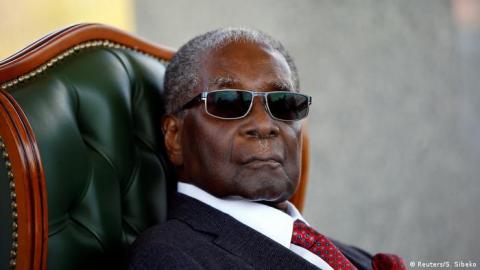Mugabe is gone but Zimbabwe press is still not safe, diverse nor secure
Submitted by fkakooza on

Media experts in Zimbabwe have decried the limited pluralism and diversity in the country’s media sector.
Methu Moyo, a former station manager of the state-owned broadcast media, and a lecturer of journalism at National University of Science and Technology in Bulawayo, said in an interview that even after the departure of President Robert Mugabe, everything about press freedom has remained the same in Zimbabwe. He said that journalists continue to get arrested, tortured and harassed despite the reforms that have been called for to help in protesting abuse of journalists.
“Nothing has changed much since the departure of Mugabe as far as press freedom is concerned. Journalism is still a crime in Zim,” Moyo said.
“Arrests of journalists, intimidation, and torture of journalists while conducting their work has continued even 41 years after independence,” Mlondolozi Ndlovu, President of the Young Journalists Association, told Anadolu Agency during the 2021 World Press Freedom Day event.
“Many cases of assault, abuse, arrest and violation against journalists that marked the more than three decades of Robert Mugabe’s rule are reported to be happening during President Emmerson Mnangagwa’s reign,” he added.
Mugabe was forced out of power in 2017 after 37 years at the helm of the country. During his term in office many journalist violation cases were reported. In 1999, Mark Chavunduka and Ray Choto journalists of the Standard newspaper were arrested and tortured after they published an article claiming that 23 army officers had been arrested for plotting a coup.
In an article published on 8th September 2020 in The Washington Post titled “Robert Mugabe is gone. But journalists are still being targeted”, global opinion writer Jason Rezaian talks about different journalists who have still suffered under the rule of Mnangagwa even after many citizens trusted him to be better than the former president Robert Mugabe.
“When they finally removed Mugabe from power (in 2017), people were ecstatic and they gave Emmerson Mnangagwa the benefit of the doubt,” Angela Quintal, Africa Program Coordinator at the Committee to Protect Journalists, told Rezaian. “They were prepared to believe that he could change. Among those were people like Hopewell Chin’ono.”
Chin’ono, a journalist, was arrested and detained for several weeks. He was arrested after his critical coverage of the government’s response to the COVID-19 epidemic. The article pointed at the president and his family for misappropriating funds that were meant for the COVID-19 response. He used social media to push the narrative that the government was failing and it was corrupt.
According to Methu Moyo the state and its agents are very brutal in arresting anyone who speaks against them, which in the process arouses fear in the citizens. “No. Freedom is there in the constitution but not beyond that. Any political statement can land one in jail or hospital. The state and its agents are brutal. Arrests of opponents are common. People don’t feel free,” said Moyo.
In October 2021, Zimbabwe Union of Journalists reported that police had arrested 10 journalists covering a public demonstration in Harare for two hours without any justification for the force’s action.
- 1418 reads
